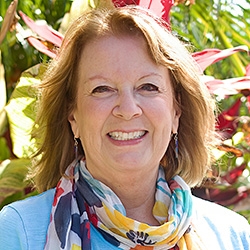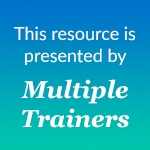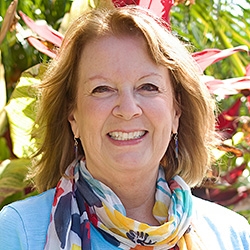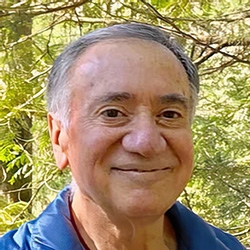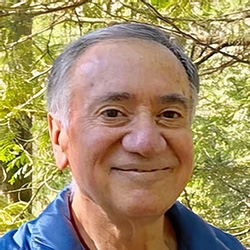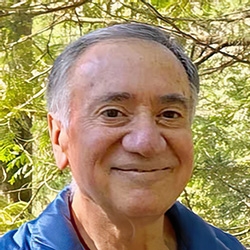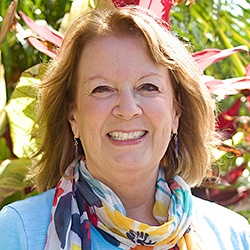

Search Results: consciousness
-
Listen to this audio to learn the value of focusing on needs in an NVC model, either for the first time or as a refresher course. Living from a needs-consciousness creates abundance, clarity and choice. Using three examples from participants, Mary guides the group towards identifying and then connecting with the needs of both parties involved in each situation. It becomes clear very quickly that people choose different ways to support their needs; and many times they have the same needs in a given situation. When we understand this, we are able to create peace in our relationships and negotiations.
“Everything someone does or says is an attempt to meet a need,” says CNVC Certified Trainer Mary Mackenzie. This simple statement is a foundational understanding in Nonviolent Communication; once you gain skills at living in a “needs-consciousness” you will literally change your life and your perception of the world, and improve all of your relationships.
-
Cunningham explains participatory/onlooker consciousness, plus feelings, needs, and NVC dialogues.
-
The NVC Circle of Life is a mandala illustrating the process and consciousness of Nonviolent Communication. Mandala literally means "sacred circle" and symbolizes wholeness, balance and harmony.
-
Learn the two core aspects of NVC: consciousness and tools to express it.
-
The focus of this 6-session class is on shifting the intention of your teaching from how to why while embodying the principles and practice of NVC every step of the way - from planning to delivery. The methodology Miki offers is to start with understanding what the people in your audience face in their environment, continue with what they might want to learn and how NVC principles can provide them with what they want, and end with how you can frame the principles in a language and context that speak to your audience’s familiar experience.
-
Sometimes I hear people say things like, “I didn’t do Compassionate Communication this week.” Or “I tried Compassionate Communication when I was arguing with my wife last week.” Compassionate Communication is not a thing to do, or to pull out of our bag of tricks once in a while. Compassionate Communication is a consciousness of valuing everyone’s needs and of valuing connection more than being right, winning or protecting ourselves. It is a way of living.
-
Join Susan Skye in this hour-long audio recording to learn how to experience the NVC consciousness as an embodied, living practice of the 'Living Energy of Needs." This recording includes a supportive learning exercise and tips for expressing needs in a non-mechanical way.
"Over the years, I have noticed that people -- including trainers and facilitators -- use the words of the NVC process without full connection to life energy, often resulting in a failure to get to a full connection with actual life energy of these qualities that we have named "needs." This results in a mechanical communication model, rather than a true empathic connection. Join me in learning how to share NVC as an embodied, living practice of the 'Living Energy of Needs."
—Susan Skye -
In A Worldwide Field of Compassion, Robert Gonzales presents an engaging course steeped in compassion-based self-discovery for ourselves and all life. Recorded in 2020, this 8-session course includes handouts, readings, exercises, and video recordings!
-
Self-compassion is essential for healing trauma and restoring your wholeness. It is also an antidote to reactivity and separation, allowing presence to emerge.
In developing presence, you can become what the world needs most in these times of intensity and chaos. This work can strengthen your skills to be more fully in relationship with all that life offers while allowing your heart to be moved by what is alive in you and with others
-
Robert's passion was in the spirituality of the Nonviolent Communication (NVC) process. He saw NVC both as a process that helps people connect more authentically with themselves and others, and as a spiritual practice and way of living. The worldwide NVC community mourned when Robert died in 2021. He left behind a legacy of work that emerged from a lifetime of inquiry into the intersection between spirituality and human communication.
-
See how consciousness evolves and links to NVC using Wilber’s stage development ideas.
-
CNVC Certified Trainer Miki Kashtan explains how naturalizing NVC language involves self care and begins with accepting what is true in the moment.
-
CNVC Certified Trainer Miki Kashtan offers 3 steps we can take to access and express our deepest authentic expression.
-
CNVC Certified Trainer Miki Kashtan guides a participant to find his inner empathic presence.
-
CNVC Certified Trainer Miki Kashtan clarifies the distinction between empathy and sympathy.
-
CNVC Certified Trainer Lore Baur shares how, as a teacher, the classroom is a laboratory for learning NVC and incorporating the NVC consciousness into the classroom. Topics discussed include empathy, permission to educate, protective use of force, corrective action, choice & options and re-do.
-
Here are seven self inquiry questions. Half of them can help you assess your NVC consciousness. The other half can help you move from pain, fear, resistance, judgement, criticism, and shame – to love, compassion, understanding, appreciation, curiosity, and more.
-
Trainer Tip: Overwhelmed with all that you want to do? If so, what are you working to change? Is it a behavior or a consciousness? Where were you with this issue when you first decided to create change? And now where are you? Celebrating your progress can encourage you to keep trying. You wouldn’t expect to jump on a treadmill and jog three miles the first time. Don't have the same expectations for your emotional fitness either!
-
“The Embodied Spirituality of Nonviolent Communication” is an introduction to NVC created from recordings of trainings Robert Gonzales offered in Hawaii in 2007 on the islands of Maui and Kauai.
This collection is a celebration of Robert's life and one way we can honor his outstanding work.
The original product was a set of DVDs. NVC Academy has converted the original 3 DVD set into 5 mp4 videos. We have taken care to preserve the original product while simultaneously upgrading to HD video and remastering the audio in this new mp4 format.
-
Sometimes there are moments when empathy has no effect at all on one another. Why? One reason could be that our brains maybe less receptive because of unseen forces that affect our nervous system and relationship to others...

Quick Links
Subscription Preferences
Stay In Touch!
Looking for ways to keep up with NVC Academy news, get special offers, free resources, or words of inspiration? Here are five ways to stay engaged:

